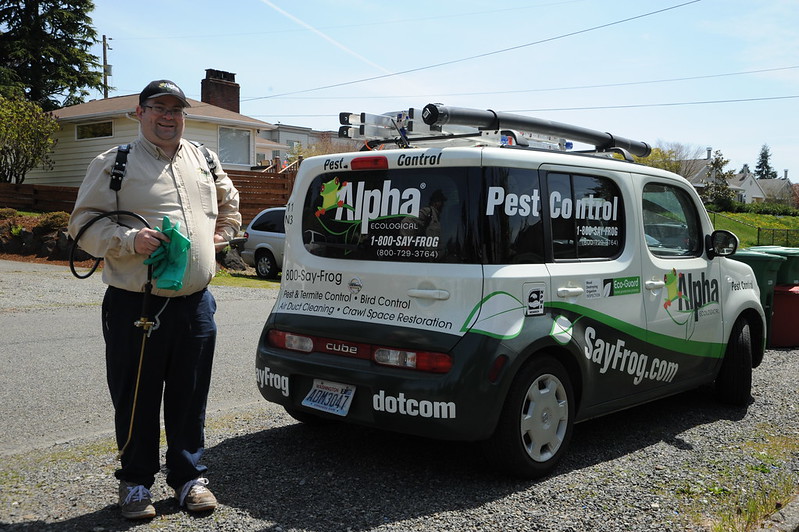Lately, the question of what to expect after pest control treatment has been asked by most homeowners. Given that, these homeowners are looking for the best possible intervention to handle pest issues.
Pests are natural inhabitants of the environment, however, it becomes a problem to humans due to their destructive behavior by any means. These pests like insects, rodents, mice, and other animals are commonly infiltrating houses and damaging furniture, spoiling food, destroying farms and crops.

Top 4 Types Of Pest Control Treatment And Its After Result
Considering how damaging these pests are to the environment, pest control has been essential to humans and ecology. If you are interested in learning, visit this article on why is pest control important, so that you could keep your house safe and free from pests.
Thus, there are various methods of pest control, such as biological pest control, pesticides (organic and chemical-based), poisoned bait, and mechanical pest control. The methods and their after result expectations will be further discussed in this article.
1. Biological pest control
By the name itself, biological pest control is a natural method of pest treatment through the use of living organisms to decrease the pest population. Scientifically explained, biological or natural control agents such as predators, pathogens, and parasitoids are considered natural enemies of pests.
This type of pest control involves the supplemental release of natural enemies to the target pest environment. Therefore, these biological control agents are significant to be conserved and considered if you are in the process of making pest management decisions.
When you utilize biological pest control treatment, do not assume that your problem is solved in a day. Unlike other treatments, biological pest control requires more time, thorough planning, and management, like proper education on the biology of pests and their enemies.
For more reliable information regarding this topic, visit this article to know what is a biological control for pest management.
2. Pesticides (organic and chemical-based)
The use of pesticides in pest control could be the most common and convenient way of treating pests. Pesticides are commercially available in various stores, but the challenge among buyers is to choose the best pesticide product, since there are different types of pesticides.
Though pesticides may be the most practical solution to pest issues, it is essential for buyers to know the advantages and disadvantages of using them. Additionally, it is vital to consider the label, application method, and safety instructions before and after usage.
Common knowledge about pesticides is its distinction as strong and harmful to human health. That is why pest control operators advise their clients to stay away from the treated area in the meantime to avoid direct contact with the chemicals.
Conversely, not all pesticides are chemical-based, because pest control experts have made-up organic pesticides to reduce the introduction of chemicals to the environment. However, organic pesticides have been reviewed as less effective than chemical-based pesticides.
Therefore, expect that you will need to repeat the process of pest control when using organic pesticides, since pests can easily be immune to these organic substances.
3. Poisoned bait
Another method of pest control treatment that is cost-efficient involves the use of poisoned or toxic bait. Basically, the food bait for pests like rodents is containing lethal chemicals that can easily kill the pest or could change its behavior.
Poisoned bait is considered effective and less harmful to the environment than pesticides spray, however, the drawback of using poisoned bait is that non-target pests are at times affected. Even though this method is effective and efficient, the usage of lethal chemicals should be regulated and be handled only by licensed pest control operators.
After this pest control treatment, expect that there are lots of dead pests or other animals around. It is important to eliminate dead pests before they decay and cause unpleasant smells.
4. Mechanical pest control
Mechanical pest control is a modern type of suppressing the pest population through the use of mechanical devices or equipment. In particular, mechanical management uses protective barriers, fences, and traps like electric and light traps.
Homeowners who have been dealing with pests usually invest in protective barriers like screens to prevent the entry of pests in windows and ventilators. Through installations of screen barriers, the use of chemicals is avoided, yet the cost required is very less.
Meanwhile, farmers prefer to use electric traps through the use of metal screens, wires, and fences to eliminate unwanted entry to their crops. Also, light traps are a very effective and smart way of attracting and killing nocturnal insects at the lowest cost possible.
By utilizing this method, expect that the pest problem will arise again and it will require repeated application. Most importantly, this would only apply to a small-scale area as a temporary solution.
Conclusion
Being able to learn the answer on what to expect after pest control treatment, you can now make a practical decision regarding the method you want to utilize. However, if the problem is too much for you to handle, it is practical to consider hiring a licensed pest control operator or service provider.
